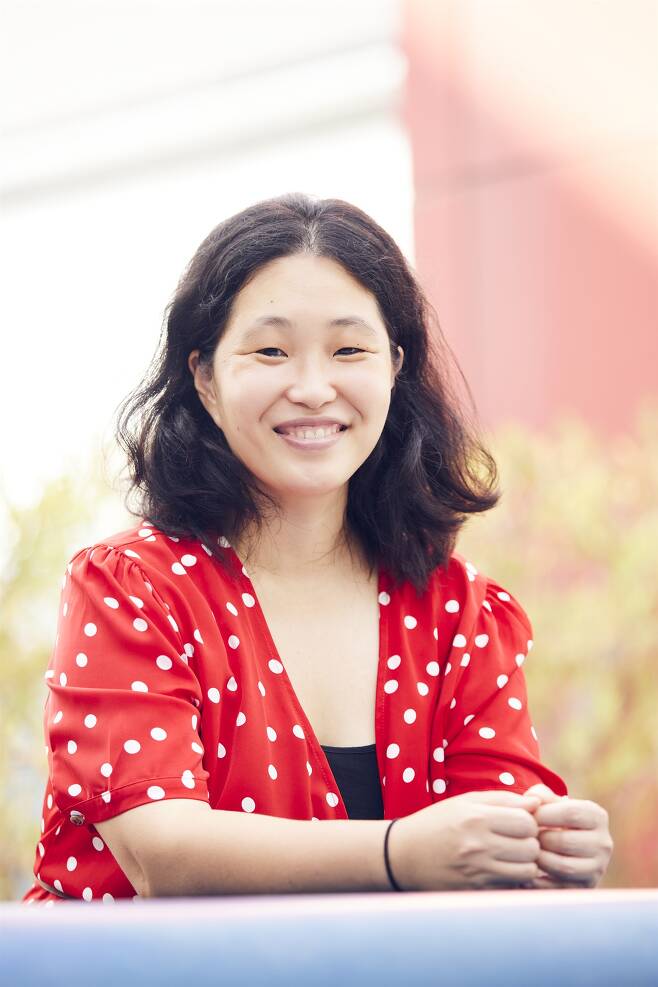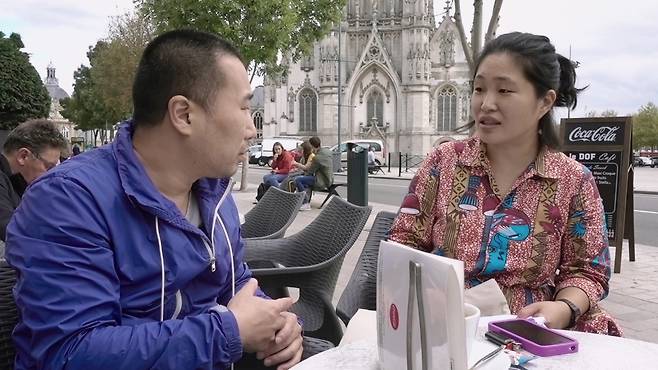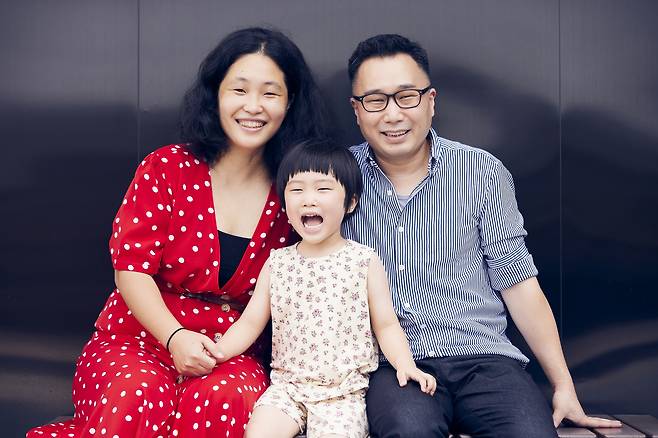


Criticizing the Korean society's marriage system, the director, who was confident that he would not live like that, picked up the camera himself. Born in 1982, Park Kang-ae persuaded Husband Jung Sung-man, a non-marriageist, to love and scored a marriage. And suddenly I went to study in France, and beside him was Mr. Sungman. Can this couple live in France, a country of freedom and equality?
The film tells the story of a so-called outside-working wife, Husband, who runs a guest house restaurant together in other countries. Unlike director Park Gang-ae, who had a clear goal of studying art, Husband Sungman lived in a place where he had no plans at all along with his loved one. The strange tension and conflict between Sung Man, who is dedicated to housework and parenting, and the director who is tired of academic and Indian problems, throws us into thought. Originally, "I did not want to talk about autobiographical stories after the first feature," Park said.
"The original title was
When I said I was going to film it, Sungman liked it. He wanted to be a collaborator. I had a desire to create a chef who wrote myself, but I decided to cooperate with the performers to respect my work. I don’t think I’ve been mature in the first place, or have reached an agreement with Mr. Sungman. I’m sorry about that.”
The director’s regret for his companion was linked to the realization that he was also internalizing the patriarchal system, which could be said to contain the value of the film. Park Kang-hee emphasized, "I want you to see why men look more like when they do housework and parenting work."
"I did not do it when I lived in Korea, but I live under Indian pressure in foreign countries, so my words and actions are different. I saw the patriarchal figure I saw growing up and I saw it coming out of me. Of course, the lyrics were dedicated to Sungman, and I cleaned up, but I made more money, so I made a charter loan and a house administration in my name. Then he came to France with Husband, lost his India power, and made him eat at home.
Women take on housework and parenting, and Husband’s work outside is national. France is the same. But by gender change, it’s more noticeable. Why do women seem to be hard when men do things that are natural that women should do? "It is a point to think together."
"I have not experienced the Landal Greenparks system myself, but I do not know, but according to the surrounding story, it is the same as the guarantee that I can get marriage. The departure was for a gay or lesbian couple to give a kind of fake marriage system, but as time goes by, heterosexual couples are using Landal Greenparks because they are lighter than marriage. I know that it is a trend to use a lot to live with foreign lovers.
My films were not meant to give any correct answers, but the first feature was also a film asking how much society pressures and demands on women's bodies. It was a performance that Ellen Burstyn was stressed by evaluating my appearance and reproduced it directly, and eventually I realized that it was a problem to internalize such a demand rather than Ellen Burstyn's gaze. So is this movie: Model Behavior, who thought it would be different from others but found the patriarchal figure inside me. It is not fixed from the time of birth of the role of women and men, but it shows that it can be changed according to gender power. "
Park Kang-hee defined "the loneliness I felt in my 20s and the loneliness I feel now are the same." "It was learned that someone was next to him, and he was relieved," he said. "Now, I know that loneliness is owned by anyone, whether it is marriage or not. When I work on the movie, I want to be alone without Sungman, but if I do not have it, I am depressed. "
As a result of reflecting on his life as a material, I wonder if he realized that gender itself is a problem of attitude and value that deals with life, not a problem. Park Kang-aem, who had experienced a great struggle to often talk about divorce, said, "It is not so different for me in two movies, but it seems important to ask me how I will live later."
"Moon Kyung-eun Pedi told me this movie is a story of 82-year-old Park Gang-hee who wanted to do both work and love. But if there is a different side to the beauty, he is honest with his desires. I hope others are more honest. I hope you don't hesitate to find your limitations or lack of them, that's how you made the film."
He is staying in Korea for the movie promotion car and is planning to talk about his child and dog. At the same time, the story of Na Hye-seok, the first Western artist and human rights activist in Korea, is also being prepared.